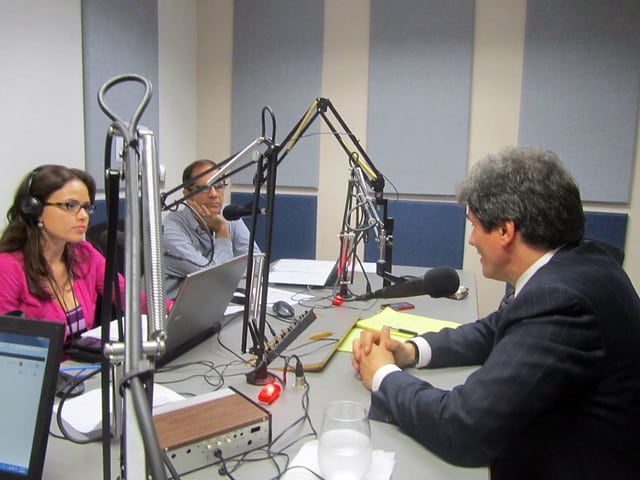Media Interviews You Just Can’t Win
Media interviews you just can’t win present a particular challenge to non-commercial organisations. Generally, commercial organisations will simply not put anyone up for an interview if they feel their spokespeople may come off worse. But public bodies often feel they have to be available for interviews however difficult the subject matter.
In the last couple of weeks, I have worked with two completely unrelated clients who each have a particular issue with a group of almost professional objectors. Sadly, I can’t share the names or issues but for the sake of this blog I have come up with a parallel or metaphor. They both face the equivalent of arguing with a vegan!
A Strategic Approach to Interviews
I am personally very sympathetic to veganism and read and think about it a lot. However, I would not bother to argue with a vegan if I was selling a meat pie! My point is that nothing I said about the meat pie would in any way change the opinion of a vegan about the pie. Nor would it change the opinion of any other vegan who was watching or listening to the argument. However, vegans are in the minority, and while we may (or may not) respect their views, our target for selling the meat pie is everyone else.
Taking this back to my clients, in both cases they face a relatively small but noisy group of objectors who both brief journalists and turn up on panels, etc. And in my opinion, both organisations pay far too much attention to their detractors, planning point by point rebuttals for arguments they will never win.
Don’t Rebut Arguments Point by Point
In life in general, and certainly in a democracy, it is very important to have these discussions, to understand each other’s position, to tweak policy, etc. But there is a judgement to be made as to whether the ‘objectors’ are representing an argument you need to respond to.
If you have a three-minute radio interview it may not be worth challenging the oppositions’ arguments in detail. Better to spend the time, as much as possible, talking about your point of view (selling the pie).
What I have observed with clients is that the arguments of the professional opposition overly dominate the preparation for any public appearance. Just because a group of people are noisy and aggressive does not mean they have a strong case – and also does not mean any audience will assume they are right.
So, my advice if faced with this sort of opposition, is to keep your focus on your own argument.
My suggested strategy is slightly different in a print or web interview compared to a broadcast interview.
Make Sure the Audience Hears Your Argument
In a broadcast interview, you will have limited time to speak. So, plan a short statement, or several short lines, that explain your high-level response to the objector but be determined to get into the discussion the positive aspect of your argument. Do not concern yourself with intellectually rebutting every point the objector can raise – as I have said you are unlikely to convince anyone. What should matter is that your argument reaches the audience who are receptive to it.
Print Journalists are Looking for a Quote
In a print interview where the journalist has been briefed by the objectors, it is a different game. Firstly, understand the journalist is not necessarily on their side or yours. They are looking to test your arguments (or perhaps the other side’s arguments). But the nature of the game is that they can only write what you say. So, it is crucial not to allow yourself to be provoked into overly combative phrases or strongly worded rebuttals. One annoyed or irritated misspeak will make the headline. Remember an interview is not a debate. You are being asked to respond to a set of arguments ‘on the record’. Keep calm and keep rational. And don’t judge the subsequent piece on whether it agrees with you or not – instead judge it on whether your side of the argument is fairly represented.
Of course, a good media trainer will rehearse you through the different types of interview you will face and ensure you can be confident about your argument and your response to the other side.
Photo credits:
- Flickr – By Alpha – originally posted to Flickr as Steak and Onion Pie.
- Flickr – US Department of State.
- Talk of War: Worried Leaders Walk a Tightrope - April 30, 2024
- Why Mick Lynch is Right to be Wary of Pre-recorded Interviews - April 16, 2024
- Takeaways from Netflix Scoop: The Prince Andrew Interview - April 10, 2024







Leave a Reply
Want to join the discussion?Feel free to contribute!